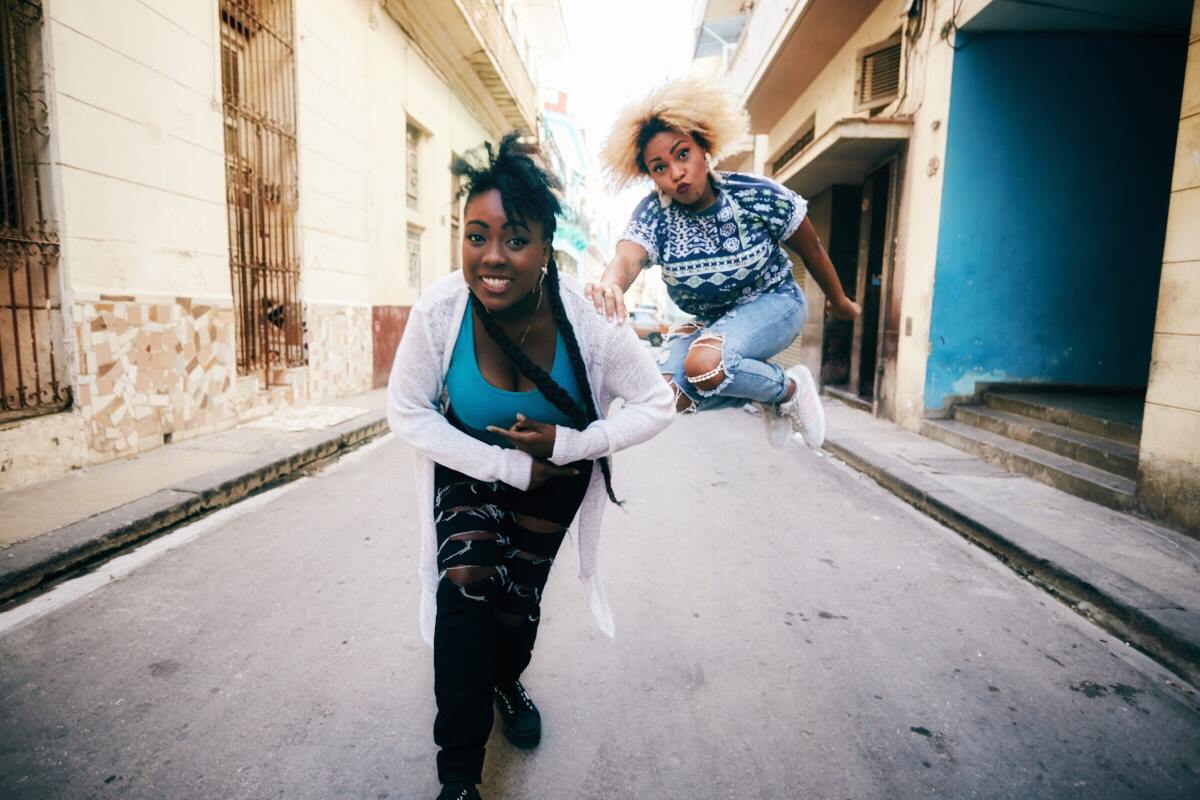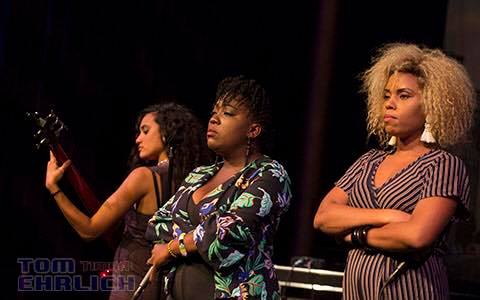Feminist Sounds: La Reyna y La Real
Welcome to a Cubana Feminist Sounds! This blog post focuses on two raperas (women rappers) in Havana, Cuba known as La Reyna y La Real. I had the pleasure of meeting both rappers during a charla this past September. Though they performed briefly then, I was also able to attend an official concert of theirs at the Casa de Música in Havana a week later. With this post I hope to introduce the music of La Reyna y La Real to the Uterish community while highlighting the duo’s feminist work as raperas cubanas.
There are two main factors to keep in mind when contextualizing the music scene and precarious position within it in which La Reyna y La Real create. First, the Cuban rap scene is dominated by men. La Reyna y La Real represent the first and some of the only raperas in Havana. Second, rap figured largely into Cuban popular culture in the 90s and has since faded from mainstream interest and support. According to La Reyna y La Real, rap has an incierto (uncertain) future in Cuba.
Though La Reyna y La Real rarely, if ever, use the word “feminist” to describe their music, they are undoubtedly making radical music that supports the voices and desires of women. La Reyna described one main focus of their music to be la visibilidad (visibility). The two elaborated that their existence as raperas opens up a space for other women artists - and specifically women rappers. Furthermore, La Reyna y La Real rap about Cuban women, machismo, and patriarchy, drawing attention to feminist issues that affect their lives. La Real mentioned that their songs are inspired by la “vida diaria” (everyday life) and life in the “barrio” (neighborhood community). Grounded in lived experience and centered on women, it is easy to identify the feminist space that La Reyna y La Real are carving out. But La Reyna y La Real also bring other parts of their identity forward to inform their music and message. Both women are afrocubana (Afro-Cuban) and La Reyna is a mother. The importance of La Reyna y La Real’s positionality as black women making space and demanding a platform cannot be underestimated in today’s Cuba where Havana is considered “raceless” yet racial prejudice and system inequities persist. When La Reyna y La Real refer to the “voz de la mujer” (voice of the woman) in their music, their message links to a history of slavery and resistance practices grounded in music.
I was particularly interested in how La Reyna y La Real characterized their rapera personas. Entering a music space dominated by men, La Reyna y La Real are doubly trapped between expectations that rap is and should be hyper-masculine versus the assumption that, as women, raperas should incorporate some appropriate level of femininity in the music they create. La Reyna y La Real’s solution is simple: be unapologetically themselves and support each other through the abundance of criticism that subsequently follows. For both women, being themselves on stage means embracing more masculine, aggressive sounds in their rapping. Yet, from an outside perspective, their music seems to resist an easy categorization as either just masculine or just feminine. This makes sense for La Reyna y La Real who both emphasize the importance of letting women be who they are. La Real insisted that she sees no distinction between her private and public life. La Reyna pointed to her curves and identified her right to be who she is naturally without shame or apology. Part of La Reyna y La Real’s feminist project is to radically validate the existence of Cuban women as they are.
La Reyna y La Real are clear that their music speaks directamente “a los mujeres” (directly to women). This is evidenced by the intentional, women-centric environment they create during their concerts. When I was able to see them perform live, I was inspired by their practice of inviting other raperas onstage (it seems to be a small yet deeply supportive group in Havana). Though men are welcomed at concerts, La Reyna y La Real make it clear who their music is for. During our charla, they explained the importance of their (feminist) message and how they view rap as a vehicle and platform for it. I hope that this blog post can help expand their platform (in admiration of and solidarity with their message) and introduce some new bops to everyone’s October playlists.
FOR MORE ON LA REYNA Y LA REAL:
TO READ:
La Reyna y La Real: Mujeres y raperas contra todo pronóstico
La Reyna y La Real del hip hop cubano
TO FOLLOW:
TO LISTEN!!!:
La Reyna y La Real’s Soundcloud
#ReynayReal
(courtesy of their Facebook page)



